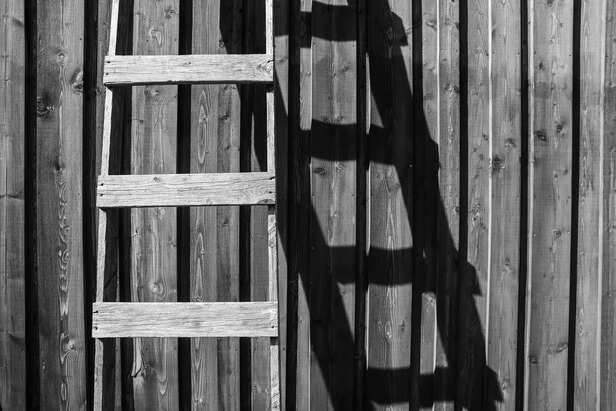The Emotional Science of Touching Feet: Why Indians Do It and What It Means
Riya Kumari | Feb 20, 2025, 23:58 IST
( Image credit : Timeslife )
So, picture this: You’re at an Indian family gathering. The buffet table is calling your name, but before you can grab a plate of paneer butter masala, your mom side-eyes you. You know the look—the one that says, “Touch their feet” Now, if you’re Indian, you’ve been through this ritual more times than you can count. Touching feet isn’t just a thing—it’s the thing. Grandparents, uncles, aunts, random elders who show up at weddings—you name it. If they’ve got gray hair, you’re probably bending down before them like they’re royalty.
There’s something about the way Indians bow down to touch someone’s feet that goes beyond just respect. It’s not an empty gesture, nor is it merely a cultural habit we perform out of obligation. It is, in many ways, an act that bridges generations, silently carrying forward something words often fail to express. But to truly understand why we do it, we need to look beyond tradition, beyond social norms, and into something deeper—the very nature of wisdom, humility, and what it means to receive and give energy.

Humility is a misunderstood word. Many think it means thinking less of oneself. But real humility isn’t about making yourself small—it’s about making space for something greater than yourself. When you touch someone’s feet, you acknowledge that they have walked more roads than you have, that they carry experiences you don’t yet understand. It is an act of recognizing wisdom, not just in them, but in the vast timeline of life itself.
Think about it. In that brief moment, you lower yourself—not in a way that diminishes your worth, but in a way that says, I see you. I see the life you’ve lived. I honor the path you have walked before me. It’s not submission. It’s an understanding that life moves forward only when knowledge is passed down. And when their hand rests on your head in blessing, it is not just a ritual—it is a silent transaction of everything they have learned, given freely to you.

Feet are an unusual thing to honor. They’re on the ground, they gather dust, they are the part of us most connected to the earth. And that is precisely the point. In Indian philosophy, feet symbolize the journey. They are what carry you through life, through time, through struggles and triumphs. To touch them is to acknowledge that the person standing before you has walked paths you have not yet traveled. It is to say: I honor the road you have walked. May I walk mine with the same wisdom.
This is why, in temples, we touch the feet of deities—not because stone idols need reverence, but because divinity itself is understood through the feet. The feet of a god have walked where humans cannot. The feet of an elder have lived through what the young have yet to experience.

If you’ve ever wondered why you feel something indescribable when you bow to touch someone’s feet—why there is a shift, a stillness, a certain peace—it’s because energy follows intention.
Our bodies conduct energy. Ancient Indian wisdom, and even modern studies in bioelectricity, suggest that energy flows through touch. When your hands reach the feet of someone older, you aren’t just touching skin—you are absorbing their energy, their life force, their accumulated wisdom. And when they place their hands on your head, it is a return of that energy, passed down in the form of blessings. It is, in a way, an invisible conversation—one that doesn’t need words.

For many, traditions like touching feet feel outdated. They clash with modern ideas of individuality, of personal space, of breaking away from hierarchy. And yet, when stripped of all societal baggage, what remains is something deeply human. Respect is not about obedience. It is about recognition. And when we recognize someone’s wisdom, when we bow—not just physically, but in acknowledgment of what came before us—we are not losing our individuality. We are strengthening it. Because to receive wisdom is to grow, and to grow is to move forward with a depth that cannot be learned alone.
So the next time you touch someone’s feet, don’t do it because you are supposed to. Do it because you understand what it means. Because in that moment, you are part of something greater than yourself—something that has flowed through time, through generations, through people who lived before you and people who will live after you. And if that isn’t something worth bowing for, what is?
1. Bowing Isn’t Just About the Other Person—It’s About You

Thank you
( Image credit : Pexels )
Humility is a misunderstood word. Many think it means thinking less of oneself. But real humility isn’t about making yourself small—it’s about making space for something greater than yourself. When you touch someone’s feet, you acknowledge that they have walked more roads than you have, that they carry experiences you don’t yet understand. It is an act of recognizing wisdom, not just in them, but in the vast timeline of life itself.
Think about it. In that brief moment, you lower yourself—not in a way that diminishes your worth, but in a way that says, I see you. I see the life you’ve lived. I honor the path you have walked before me. It’s not submission. It’s an understanding that life moves forward only when knowledge is passed down. And when their hand rests on your head in blessing, it is not just a ritual—it is a silent transaction of everything they have learned, given freely to you.
2. Why Feet? Why Not Hands or Eyes?

Path
( Image credit : Pexels )
Feet are an unusual thing to honor. They’re on the ground, they gather dust, they are the part of us most connected to the earth. And that is precisely the point. In Indian philosophy, feet symbolize the journey. They are what carry you through life, through time, through struggles and triumphs. To touch them is to acknowledge that the person standing before you has walked paths you have not yet traveled. It is to say: I honor the road you have walked. May I walk mine with the same wisdom.
This is why, in temples, we touch the feet of deities—not because stone idols need reverence, but because divinity itself is understood through the feet. The feet of a god have walked where humans cannot. The feet of an elder have lived through what the young have yet to experience.
3. The Science of Energy Transfer

Silence
( Image credit : Pexels )
If you’ve ever wondered why you feel something indescribable when you bow to touch someone’s feet—why there is a shift, a stillness, a certain peace—it’s because energy follows intention.
Our bodies conduct energy. Ancient Indian wisdom, and even modern studies in bioelectricity, suggest that energy flows through touch. When your hands reach the feet of someone older, you aren’t just touching skin—you are absorbing their energy, their life force, their accumulated wisdom. And when they place their hands on your head, it is a return of that energy, passed down in the form of blessings. It is, in a way, an invisible conversation—one that doesn’t need words.
4. The Real Question: Do We Still Believe in This?

Ladder
( Image credit : Pexels )
For many, traditions like touching feet feel outdated. They clash with modern ideas of individuality, of personal space, of breaking away from hierarchy. And yet, when stripped of all societal baggage, what remains is something deeply human. Respect is not about obedience. It is about recognition. And when we recognize someone’s wisdom, when we bow—not just physically, but in acknowledgment of what came before us—we are not losing our individuality. We are strengthening it. Because to receive wisdom is to grow, and to grow is to move forward with a depth that cannot be learned alone.
So the next time you touch someone’s feet, don’t do it because you are supposed to. Do it because you understand what it means. Because in that moment, you are part of something greater than yourself—something that has flowed through time, through generations, through people who lived before you and people who will live after you. And if that isn’t something worth bowing for, what is?
